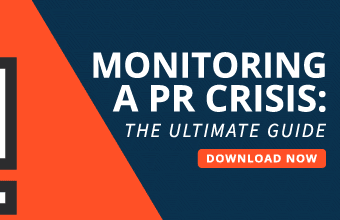Most of us have heard the famous phrase, “It takes many good deeds to build a good reputation, and only one bad one to lose it.”
Unfortunately, these days, you don’t have complete control over your own reputation. There was a time when, as long as your company didn’t make a huge mistake, you wouldn’t generate any negative headlines in the press. Everything was in your hands.
But we now have social media, which means that anybody with an internet connection can smear your good name all over the web. While maintaining solid business practices, successful sales, and satisfied customers will undoubtedly help ensure your reputation stays strong, you still must put in work to defend your character.
The following three strategies won’t prevent everyone from ever saying anything bad about your company. If you employ these methods, however, you are much less likely to suffer any significant damage to your reputation.
1. Listen first
Before you can do anything to protect your reputation, you must understand what it is. This means your first step should always be “listening” to what is being said online, paying particular attention to social media.
Don’t be reactionary and respond to every perceived slight. Of course, you should address direct questions and concerns that are pertinent. But, mostly, you should just watch the content being posted through social media monitoring and look for anything that is generating a lot of attention. Perhaps even more importantly, keep an eye out for any messages that actually point out valid criticisms that can be shared with decision-makers to potentially improve the issue.
2. Set the record straight
Particularly when a rumor is persistent and has the potential to be highly damaging, it must be addressed head on. This can best be done by providing clear information that debunks the myth and sets the record straight. Nowadays, social media channels are arguably the easiest way to get that message out and should be supported with fact-centric explanations on your company website or articles published by credible media outlets.
Amway is one company has done this very well. The direct sales giant has long had to deal with “Amway Scam” fabrications and has responded by going on the offensive to ensure the public understands the truth. On its website, it has a thoughtful and inclusive write up on the issue that seeks to counteract any enduring negativity.
3. Engage directly when appropriate
There are two keys to engaging with upset people on social media: Knowing when to engage and knowing how to engage. This is why it is essential to ensure that the person managing your social accounts has a refined sense of discretion. While sending out funny or viral tweets is something all brands desire, nothing is more important than having the right demeanor and understanding how to walk the thin line between over-engaging and under-engaging.
The reason that a social media manager is such a vital role for modern companies is that this person must instinctively know when to have a cordial conversation with an angry consumer, when to respond with a simple informative link, when not to engage at all, or when to push back with a bit of snark. This is all more art than science, but when done correctly—like this widely shared clever barb from Wendy’s—the proper reply can do more than even paid advertising to build support your brand.
Sticking up for yourself
Your reputation isn’t the only thing, but it will always be one of the most important assets for any company. So you can’t just sit by idly as others unfairly try to tear you down.
Instead, you must monitor what is being said about your organization online, set the record straight, and understand both when and how to engage.
Just by nailing these three aspects, you will be way ahead of the game when it comes to defending your reputation. You may never be able to entirely stop people from spreading unfounded rumors. But you must take steps to limit the fallout.









